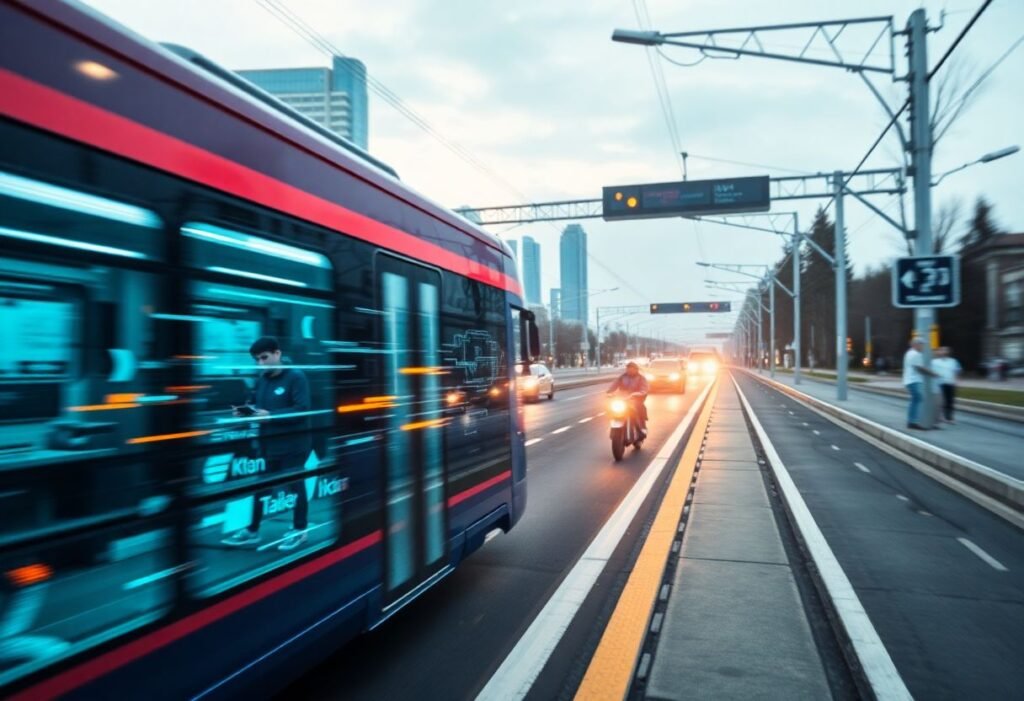The Internet of Things (IoT) is revolutionizing the transportation sector by introducing innovative solutions that enhance efficiency and safety. This article explores how IoT technologies are shaping the future of transportation, transforming logistics, and providing smarter mobility solutions.
The Role of IoT in Transportation
The adoption of IoT technologies in the transportation industry is increasing at a rapid pace. With the integration of sensors, devices, and software, transportation systems can now communicate in real-time, leading to significant improvements in operational efficiency and safety. For example, smart traffic signals can adjust based on traffic flow, reducing congestion. Fleet management systems can monitor vehicle conditions, ensuring timely maintenance and decreasing the likelihood of breakdowns. Ultimately, IoT is enabling a more connected and responsive transportation network.
Enhancing Fleet Management
Effective fleet management is essential for businesses operating in logistics and transportation. The use of IoT sensors allows companies to track vehicle locations, monitor fuel efficiency, and analyze driver behavior. This data enables businesses to optimize routes, reducing fuel consumption and turnaround times. Furthermore, with real-time data, fleet managers can make informed decisions quickly, enhancing customer satisfaction by ensuring timely deliveries. Investments in IoT technologies for fleet management are yielding positive returns, making it a critical component of modern logistics.
Impact on Public Transportation Systems
Public transportation is also experiencing a transformation due to IoT. Integrated systems equipped with smart sensors provide valuable data on passenger numbers, vehicle locations, and service performance. Transit agencies can leverage this information to optimize services, increase operational efficiency, and improve overall customer experience. For instance, real-time updates on bus or train arrivals can drastically reduce waiting times, making public transport a more viable option for commuters. By enhancing service reliability, IoT opens doors for increased usage of public transport.
Safety and Security Improvements
Safety remains a primary concern in the transportation sector, and IoT is creating opportunities to enhance security measures. With the integration of IoT devices, transportation systems can monitor vehicles for unusual behavior or incidents in real-time. This technology allows for quicker emergency response times and can even provide predictive analytics to anticipate risks before they manifest. Additionally, connected devices can aid law enforcement by providing critical information for accident investigations or monitoring known high-risk areas of travel.
The Future of Autonomous Vehicles
As the technology behind autonomous vehicles continues to advance, IoT plays a vital role in ensuring these vehicles operate safely and efficiently. With the ability to communicate with other vehicles and infrastructure, autonomous systems can analyze environmental conditions, detect obstacles, and make real-time decisions. This collaborative environment not only enhances safety but also helps alleviate traffic congestion. The seamless integration of IoT in autonomous vehicle systems underscores the potential for a future where transportation is both automated and intelligent.
Sustainability and the IoT Revolution
In an era where sustainability is paramount, IoT is facilitating eco-friendly transportation solutions. Through data collection and analytics, transportation systems can optimize routes and minimize emissions. Smart logistics platforms are paving the way for sustainable practices, tracking carbon footprints, and improving cargo loads to reduce environmental impacts. This alignment between IoT technology and sustainability goals creates a promising avenue for the future of transportation systems that prioritize ecological considerations.
Disclaimer: This article provides information based on current IoT technology trends in transportation and should not be considered as professional advice.





















